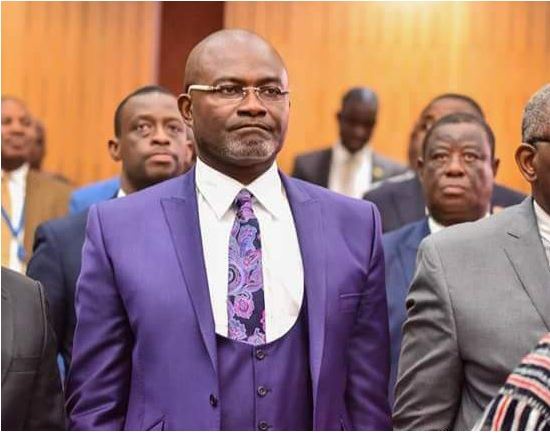The prosecution in the Kennedy Agyapong’s trail on Wednesday failed to appear before the Accra Circuit Court hearing the case.
Mr Anthony Rexford Wiredu, Chief State Attorney, who has been prosecuting the matter, did not show up in court when the case was called. Mr Ayikwei Otoo, Counsel for Kennedy Agyapong, Member of Parliament (MP) for Assin Central, told the court presided over by Mr Ebenezer Osei Darko that he tried to reach the prosecutor several times on his phone but to no avail.
He said defence had indicated its intention to file a submission of no case on the charges brought against Kennedy Agyapong. Mr Ebenezer Osei Darko, the trial judge, said though prosecution was not in court, at the previous hearing, the state indicated readiness to continue with the matter.
The Court, subsequently adjourned the case to April 28, 2013.
The accused was arrested on Monday, April 16, 2012, after he was invited by the Criminal Investigations Department of the Ghana Police Service over statements he allegedly made on April 13, same year on his Accra-based radio station, Oman FM.
He was alleged to have “declared war” and vowed to lynch any fake security operative, following the alleged physical attack on Ms Ursula Owusu, then New Patriotic Party (NPP) Ablekuma South parliamentary aspirant, and Mr Abu Jinapor, an aide to the NPP flagbearer, Nana Addo Dankwa Akufo-Addo, at Odododiodoo in Accra. The accused reportedly said he would organise supporters of the NPP to defend themselves because the police had failed to protect them.
On Wednesday, April 18, same year, the Adjabeng Magistrate's Court in Accra declined jurisdiction in the case of treason, felony and attempted genocide brought against the accused, saying such crimes should be tried by the High Court.
Ms Patricia Quansah, Presiding over the court, said in a ruling after prosecution had asked for the remand of the accused, that such cases were heard by three high court judges. She said the Chief Justice on June 17, 2008, released a circular to all judges stating that cases such as treason, murder, narcotics and rape, were to be referred to the Chief Justice, who would in turn refer them to the court.
Ms Quansah asked the prosecution, also led by Mr Wiredu, to refer the case to the Chief Justice to determine which court should hear it.
Crime & Punishment of Thursday, 14 March 2013
Source: GNA
Prosecution fails to show up at Kennedy Agyapong’s trial

















